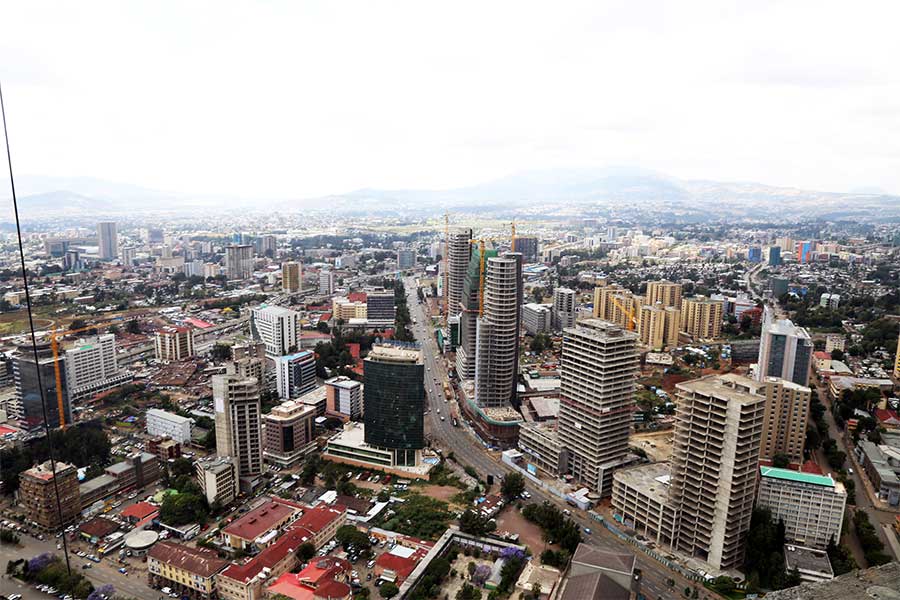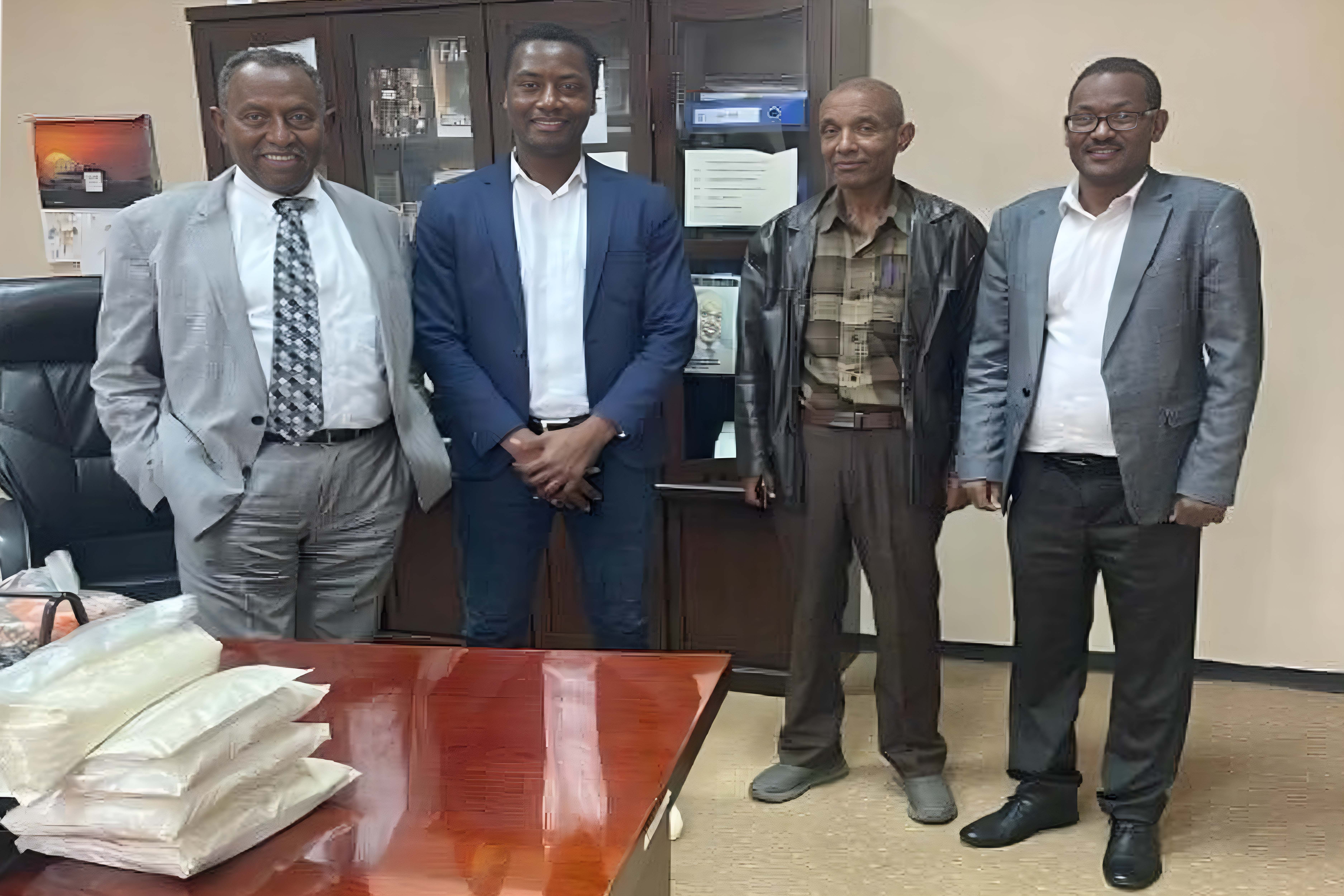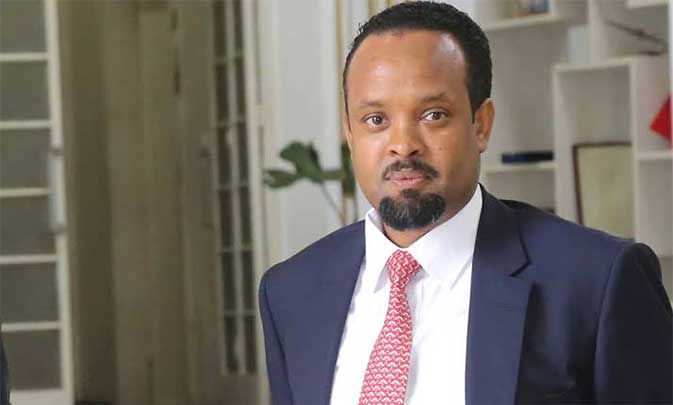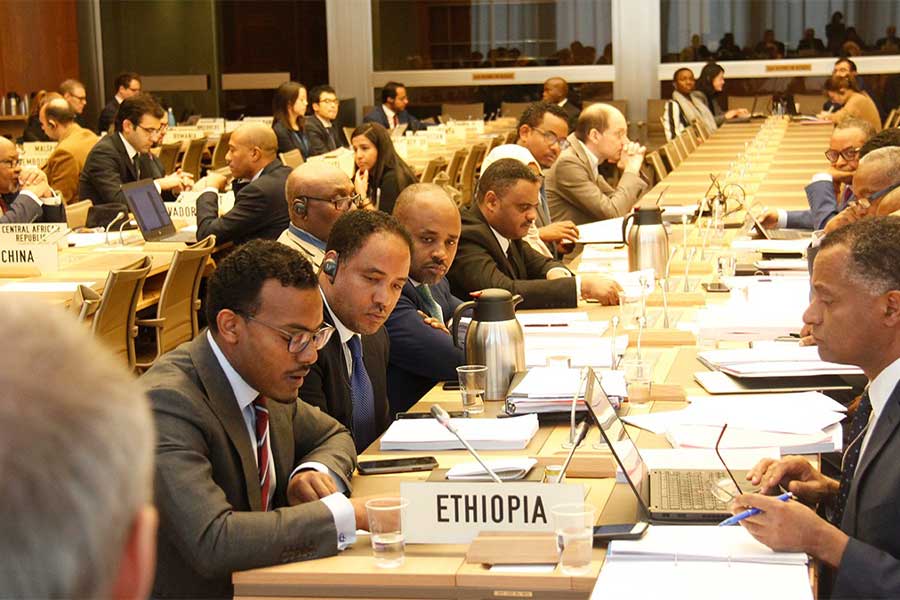
Commentaries | Apr 17,2021
Oct 26 , 2024
By Ajay Banga , Fernando Haddad and Marina Silva
With this year's global summits on biodiversity (COP16), climate change (COP29), and desertification (COP16) fast approaching, the consequences of the climate emergency are evident everywhere.
Floods have ravaged Central Europe, super-typhoon Yagi has just struck Southeast Asia, and Hurricanes Helene and Milton have wreaked havoc in the southeastern United States. Hotter, drier conditions have created ideal conditions for wildfires like those that have raged across Brazil, South Africa, and Colombia, while droughts have pushed people into food insecurity this year in Africa. If the scale and speed of our response to climate change are inadequate to the threat, this new normal will get only worse, jeopardising hard-won development gains in low- and middle-income countries.
In addition to curbing emissions from burning fossil fuels, one of the biggest priorities should be to protect and conserve the world's remaining tropical forests.
Tropical forests store significant amounts of carbon, and their demise would result in a massive one-degree Celsius increase in global average temperatures, not to mention the loss of untold biodiversity and the depletion of ecosystem services such as atmospheric rivers that supply water to food crops around the world. Scientists warn that the degradation of several of these forests is approaching a tipping point where the remaining forest will be unable to sustain itself or recover.
Individuals, countries, and NGOs are stepping up to protect and preserve the world's forests from devastation. But to address the complex, rapidly changing factors driving illegal deforestation, we will need a combination of economic and environmental solutions.
Fortunately, such solutions are at hand.
In Brazil, President Lula Lula da Silva's administration has already significantly curbed deforestation. Between August 2023 and July 2024, tropical forest loss in the Brazilian Amazon was cut by 46pc, compared to the previous 12 months. And at the global level, Brazil, which holds the G20 presidency this year, has emphasised nature-based solutions to climate challenges as part of its agenda, paving the way for further progress at COP30 in Belem in 2025.
For its part, the World Bank Group is supporting similar public and private efforts across developing economies. The goal is to design strong policies, build credible institutions, and mobilise investments in the infrastructure needed to sustainably conserve and manage forests. Making forest finance more widely available and more affordable is key.
The World Bank Group is also working to turn the vast potential of carbon markets into an income stream for developing countries committed to reducing emissions and conserving their forests. Already, 15 countries are benefiting from a pipeline that could produce more than 24 million carbon credits by the end of 2024, a win for both the climate and development.
But those engaged in these efforts have long been dogged by the question of how to support the conservation of standing forests over the long term. While forest carbon markets have created new revenue streams, they usually reward only those countries, communities, or project developers focused on reducing their emissions from deforestation. Thus, forests that are not under immediate threat offer no financial reward.
One solution is the proposed Tropical Forest Forever Facility (TFFF), a large-scale, performance-based mechanism that would use blended finance to generate financial returns and reward countries for protecting their standing forests. Instead of carbon credits, the Facility would provide predictable long-term financial support linked to a country's hectares of standing forests, thus aligning economic incentives with environmental outcomes.
Led by the Brazilian ministries of Finance and Environment & Climate Change, and in partnership with other tropical forest countries, developed economies, and non-traditional sponsors, the Facility aims to leverage sovereign and philanthropic funding to mobilise more private capital, thus expanding forest finance beyond public-sector tools. Crucially, it would allow private investors to support a global public good by quantifying and verifying the underlying asset on terms aligned with their business models.
This is the kind of bold, innovative solution that we need if we want to make a real difference in the fight against climate change. One of the biggest advantages of the Facility is that it is not expected to depend on scarce donor grants and recurrent replenishments. Instead, it would require a one-time, fully repayable investment from potential sponsors, who would, therefore, be presented with a conceptually novel development-aid model.
Those designing the TFFF are also studying how to simplify disbursement models (without any loss of rigour) through digital monitoring, reporting, and verification systems, and how to disburse enough annually to tip the scales away from deforestation. Finally, another important question that is coming into focus is how to improve access to such mechanisms for indigenous peoples, local communities, and other forest owners and stewards. The countries working on the TFFF intend to address these issues by COP30.
Forests are vital not just for the carbon they store, but also for their role in maintaining ecological balance, supporting environmental health, and promoting economic growth and human development. The period between COP16 in Cali and next year's COP30 in Brazil could be the perfect time to launch the TFFF and set the stage for a new era in forest conservation finance. We should start properly rewarding countries that have controlled deforestation and redouble our efforts to conserve existing forests for future generations.
PUBLISHED ON
Oct 26,2024 [ VOL
25 , NO
1278]

Commentaries | Apr 17,2021

Fortune News | Aug 12,2023

Featured | Jan 11,2020

Radar | Jul 29,2023

Radar | Oct 23,2023

Commentaries | Jul 27,2024

Radar | Dec 14,2019

Sponsored Contents | May 22,2023


Fortune News | Feb 01,2020

Photo Gallery | 173464 Views | May 06,2019

Photo Gallery | 163686 Views | Apr 26,2019

Photo Gallery | 153680 Views | Oct 06,2021

My Opinion | 136524 Views | Aug 14,2021
Editorial | Oct 11,2025

Dec 22 , 2024 . By TIZITA SHEWAFERAW
Charged with transforming colossal state-owned enterprises into modern and competitiv...

Aug 18 , 2024 . By AKSAH ITALO
Although predictable Yonas Zerihun's job in the ride-hailing service is not immune to...

Jul 28 , 2024 . By TIZITA SHEWAFERAW
Unhabitual, perhaps too many, Samuel Gebreyohannes, 38, used to occasionally enjoy a couple of beers at breakfast. However, he recently swit...

Jul 13 , 2024 . By AKSAH ITALO
Investors who rely on tractors, trucks, and field vehicles for commuting, transporting commodities, and f...

Oct 11 , 2025
Ladislas Farago, a roving Associated Press (AP) correspondent, arrived in Ethiopia in...

Oct 4 , 2025
Eyob Tekalegn (PhD) had been in the Governor's chair for only weeks when, on Septembe...

Sep 27 , 2025
Four years into an experiment with “shock therapy” in education, the national moo...

Sep 20 , 2025
Getachew Reda's return to the national stage was always going to stir attention. Once...

Oct 12 , 2025
Tomato prices in Addis Abeba have surged to unprecedented levels, with retail stands charging between 85 Br and 140 Br a kilo, nearly triple...

Oct 12 , 2025 . By BEZAWIT HULUAGER
A sweeping change in the vehicle licensing system has tilted the scales in favour of electric vehicle (EV...

Oct 12 , 2025 . By NAHOM AYELE
A simmering dispute between the legal profession and the federal government is nearing a breaking point,...

Oct 12 , 2025 . By NAHOM AYELE
A violent storm that ripped through the flower belt of Bishoftu (Debreziet), 45Km east of the capital, in...